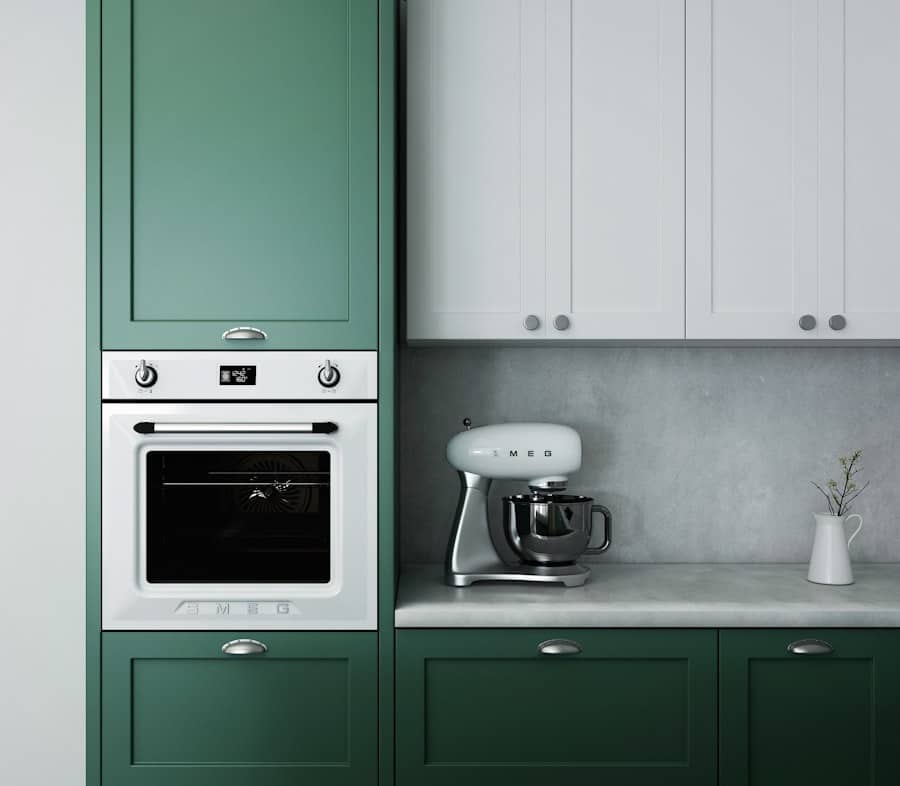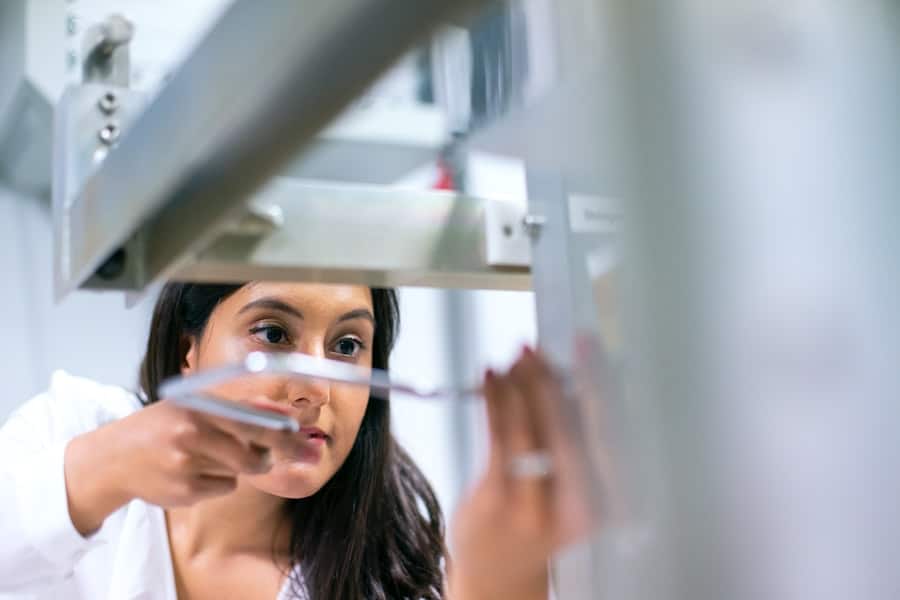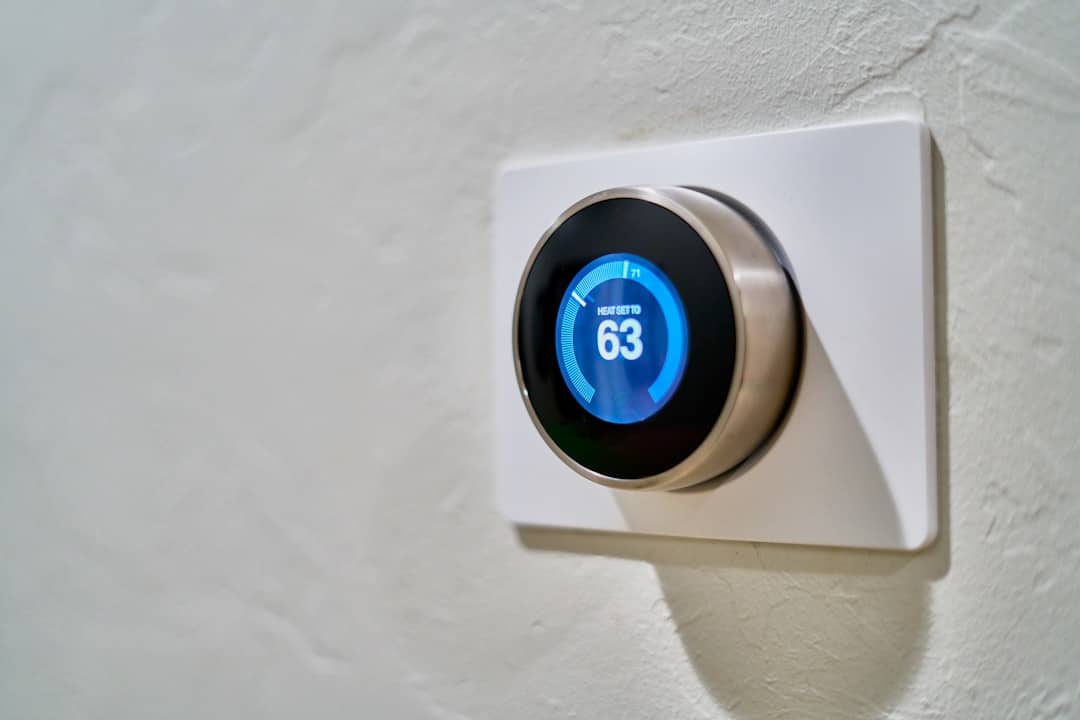The Internet of Things (IoT) has revolutionized various sectors, and the kitchen is no exception. IoT-connected kitchen appliances are devices that can communicate with each other and with users via the internet, enabling a level of interactivity and automation that was previously unimaginable. These appliances range from smart refrigerators that can track inventory and suggest recipes based on available ingredients to ovens that can be preheated remotely.
The integration of IoT technology into kitchen appliances not only enhances convenience but also transforms the way we approach cooking and meal preparation. As the demand for smart home technology continues to rise, manufacturers are increasingly focusing on developing IoT-connected kitchen appliances that cater to the needs of modern consumers. These devices are designed to simplify cooking processes, reduce energy consumption, and promote healthier eating habits.
With the ability to monitor and control appliances from a smartphone or tablet, users can enjoy a seamless cooking experience that aligns with their busy lifestyles. The evolution of these technologies marks a significant shift in how we interact with our kitchens, making them more efficient and user-friendly.
Key Takeaways
- IoT-connected kitchen appliances enable remote monitoring and control of kitchen devices through the internet, providing convenience and efficiency in the kitchen.
- The benefits of IoT-connected kitchen appliances include improved energy efficiency, time savings, and enhanced convenience through remote monitoring and control.
- Examples of IoT-connected kitchen appliances include smart refrigerators, ovens, coffee makers, and dishwashers, which can be controlled and monitored through smartphone apps.
- IoT-connected kitchen appliances improve efficiency in the kitchen by enabling users to preheat ovens, adjust cooking settings, and receive notifications on cooking progress remotely.
- IoT-connected kitchen appliances play a role in healthier cooking by providing access to recipes, nutritional information, and personalized cooking recommendations, promoting healthier eating habits.
Benefits of IoT-Connected Kitchen Appliances
One of the most significant benefits of IoT-connected kitchen appliances is the convenience they offer. Imagine being able to preheat your oven while still at the grocery store or receiving notifications when your food is ready. This level of control allows users to manage their cooking schedules more effectively, making it easier to balance meal preparation with other daily responsibilities.
Additionally, many smart appliances come equipped with voice control capabilities, allowing users to operate them hands-free, which is particularly useful when multitasking in the kitchen. Another advantage is the potential for energy savings. Many IoT-connected appliances are designed to optimize energy usage by providing real-time data on consumption patterns.
For instance, smart refrigerators can adjust their cooling settings based on usage patterns, while smart dishwashers can run during off-peak hours when electricity rates are lower. This not only helps reduce utility bills but also contributes to a more sustainable lifestyle by minimizing energy waste. Furthermore, these appliances often come with features that allow users to monitor their energy consumption, empowering them to make informed decisions about their usage habits.
Examples of IoT-Connected Kitchen Appliances

The market is flooded with innovative IoT-connected kitchen appliances that cater to various cooking needs. One prominent example is the smart refrigerator, which can track food inventory and expiration dates. Brands like Samsung and LG have developed models equipped with internal cameras that allow users to view their fridge contents remotely via a smartphone app.
This feature helps prevent food waste by reminding users of items that need to be consumed soon and even suggesting recipes based on available ingredients. Another noteworthy example is the smart oven, such as those offered by brands like June and Breville. These ovens come with built-in cameras and advanced sensors that can recognize food items and automatically adjust cooking settings accordingly.
Additionally, some models offer guided cooking features, providing step-by-step instructions for various recipes, which can be particularly beneficial for novice cooks looking to improve their culinary skills.
How IoT-Connected Kitchen Appliances Improve Efficiency in the Kitchen
IoT-connected kitchen appliances significantly enhance efficiency by streamlining various cooking processes. For instance, smart slow cookers can be programmed to start cooking at specific times, allowing users to prepare meals in advance without needing to be present in the kitchen. This feature is particularly advantageous for busy families who want to enjoy home-cooked meals without dedicating extensive time to meal preparation.
Moreover, these appliances often come with integrated recipe databases that allow users to explore new dishes effortlessly. By simply selecting a recipe on their smartphone or tablet, users can send cooking instructions directly to their smart oven or stovetop, which will automatically adjust settings for optimal results. This level of integration not only saves time but also reduces the likelihood of cooking errors, making it easier for individuals to experiment with new cuisines and techniques.
The Role of IoT-Connected Kitchen Appliances in Healthier Cooking
IoT-connected kitchen appliances play a crucial role in promoting healthier cooking habits by providing users with valuable insights into their food choices and preparation methods. For example, smart scales can measure ingredients accurately while offering nutritional information about each component. This feature encourages users to be more mindful of portion sizes and nutritional content, ultimately leading to healthier meal choices.
Additionally, many smart appliances come equipped with features that promote healthier cooking techniques. Air fryers, for instance, use hot air circulation to cook food with significantly less oil than traditional frying methods. Some models even connect to apps that provide healthy recipe suggestions tailored to individual dietary preferences or restrictions.
Potential Challenges and Concerns with IoT-Connected Kitchen Appliances

Cybersecurity Risks in the Kitchen
While IoT-connected kitchen appliances offer numerous benefits, they also introduce potential challenges and concerns. One significant issue is cybersecurity. As these devices connect to the internet, they become vulnerable to hacking and unauthorized access. Instances of cyberattacks on smart home devices have raised alarms about privacy and data security, prompting manufacturers to prioritize robust security measures in their designs.
The Risk of Over-Reliance on Technology
Another concern is the reliance on technology for everyday tasks. While IoT-connected appliances offer convenience, there is a risk that users may become overly dependent on them, potentially diminishing traditional cooking skills over time. For instance, individuals may rely on smart ovens for precise cooking without learning fundamental techniques such as timing or temperature control.
The Impact on Culinary Knowledge and Appreciation
This shift could lead to a generation of cooks who lack essential culinary knowledge, which may impact the overall appreciation for cooking as an art form.
Future Trends in IoT-Connected Kitchen Appliances
The future of IoT-connected kitchen appliances is poised for exciting developments as technology continues to advance. One emerging trend is the integration of artificial intelligence (AI) into these devices. AI-powered appliances can learn user preferences over time, offering personalized recommendations for recipes and cooking methods based on past behavior.
This level of customization enhances user experience and encourages individuals to explore new culinary possibilities. Additionally, sustainability will likely play a significant role in the evolution of IoT-connected kitchen appliances. As consumers become increasingly aware of environmental issues, manufacturers are expected to focus on creating energy-efficient devices that minimize waste and promote eco-friendly practices.
Innovations such as smart composting systems that track food waste or appliances designed for minimal energy consumption will likely gain traction in the coming years.
The Impact of IoT-Connected Kitchen Appliances on the Future of Cooking
The advent of IoT-connected kitchen appliances marks a transformative era in culinary practices, reshaping how we approach cooking and meal preparation. With their ability to enhance convenience, promote healthier eating habits, and improve efficiency in the kitchen, these devices are becoming indispensable tools for modern households. As technology continues to evolve, we can expect even more innovative solutions that cater to our changing lifestyles and preferences.
While challenges such as cybersecurity concerns and potential over-reliance on technology exist, the benefits of IoT-connected kitchen appliances far outweigh these drawbacks for many consumers. The future promises exciting advancements driven by AI and sustainability initiatives that will further enhance our cooking experiences. Ultimately, as we embrace these technologies, we are not only redefining our kitchens but also fostering a deeper connection with food and the art of cooking itself.
If you’re interested in optimizing your content for SEO, you may want to check out the NeuronWriter review on enicomp.com. This tool can help you improve your writing and make it more search engine friendly. It’s a great resource for anyone looking to enhance their online presence.
FAQs
What are IoT-connected kitchen appliances?
IoT-connected kitchen appliances are traditional kitchen appliances such as refrigerators, ovens, and coffee makers that are equipped with internet connectivity and sensors. This allows them to communicate with other devices and be controlled remotely.
How do IoT-connected kitchen appliances make cooking smarter?
IoT-connected kitchen appliances make cooking smarter by offering features such as remote control, recipe suggestions, and automatic adjustments based on food freshness and cooking progress. They can also provide alerts and notifications to users, making the cooking process more efficient and convenient.
What are the benefits of using IoT-connected kitchen appliances?
The benefits of using IoT-connected kitchen appliances include increased convenience, time savings, energy efficiency, and improved cooking results. These appliances can also help users reduce food waste and make better use of ingredients.
Are there any security concerns with IoT-connected kitchen appliances?
Yes, there are security concerns with IoT-connected kitchen appliances, as they are vulnerable to hacking and unauthorized access. It is important for users to secure their devices with strong passwords and keep their software up to date to minimize the risk of security breaches.

